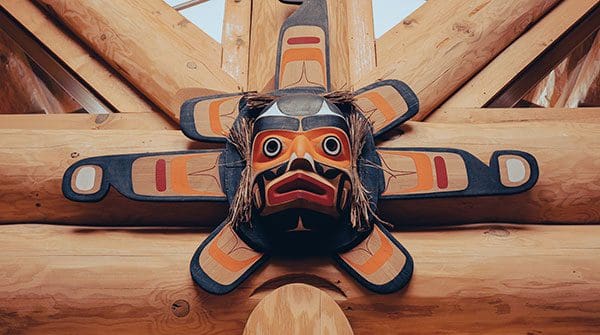Canada’s journey towards a revitalization of Indigenous languages
 Raphael Lemkin was a Polish Jewish lawyer who lost 49 members of his immediate family in the Holocaust. He is also the person who coined the word “genocide”.
Raphael Lemkin was a Polish Jewish lawyer who lost 49 members of his immediate family in the Holocaust. He is also the person who coined the word “genocide”.
What many do not realize is that Lemkin knew what genocide was before he knew the details of the Holocaust. He had studied the Armenian Genocide in particular and could see what Hitler and the Nazis were planning. He begged other family members to flee with him, but no one would listen. He spent most of the war years teaching law at prestigious American universities.
Lemkin was not only a brilliant lawyer and social observer; he was also a man of uncompromising decency and integrity. If we really do want to make “never again” a reality, it would serve us well to embrace his understanding of the word he created and put his recommendations into practice.
Lemkin understood that genocide is much larger than the Holocaust. According to scholars Michael McDonnel and Dirk Moses in the Journal of Genocide Research, “To … deny, that he (Lemkin) regarded colonialism as an integral part of a world history of genocide is to ignore the written record.”
After the Second World War, Lemkin discussed his writings on genocide with a committee in the newly formed United Nations. The document that was approved in December 1948, the Genocide Convention, was a compromise. Lemkin’s ideas were watered down so as not to hold accountable many of the most powerful people in the world. The Genocide Convention was largely forgotten during the Cold War, and, to this day, it is rarely enforced. This is much to the detriment of humanity.
While “the forcible transfer of children from one group to another” is part of the Genocide Convention, earlier drafts include the following phrase as well, “Any deliberate act committed with the intention of destroying the language, religion or culture of a … group, such as, for example, prohibiting the use of the group’s language or its schools or places of worship.”
Lemkin recognized the treatment of Indigenous peoples in the United States, Canada, Australia, New Zealand, and many other examples of colonial conquest as genocide. Following Lemkin’s argument, all efforts to destroy Indigenous language and culture are acts of genocide.
We cannot turn back the clock, but we can heal the wounds of the past. There are ongoing success stories that we can embrace and emulate.
In New Zealand, for example, the Māori language had nearly ceased to exist by the 1960s, and the Māori people were in crisis. Their leadership petitioned the government to support language education programs, and they listened. Today one can study in Māori from preschool through high school and even beyond. Growing numbers of Pakeha (non- Māori New Zealanders) are learning the language as well. Mauri culture has thus become an integral part of the national identity of many New Zealanders, and it is forecast that, by 2040, 20 per cent of the population will speak the Māori language. It should be noted that, almost without exception, Māori speakers can also converse in perfect English.
The Māori story brings with it a message of hope for Canada. Though Indigenous languages are much more diverse here than in New Zealand, the process of linguistic renaissance has begun. We are several decades behind the Māori, but we know where we are going. By the next generation, Indigenous languages can again be an integral part of Canadian culture, but it will take a sustained effort from our governments, education systems, and Indigenous and settler populations to get there.
Genocide is horrible, but there is a resiliency in the human spirit that is far more powerful than its destructive forces. We are watching the people it tried to destroy thrive and prosper.
Gerry Chidiac specializes in languages, genocide studies and works with at-risk students. He is the recipient of an award from the Vancouver Holocaust Education Centre for excellence in teaching about the Holocaust.
For interview requests, click here.
The opinions expressed by our columnists and contributors are theirs alone and do not inherently or expressly reflect the views of our publication.
© Troy Media
Troy Media is an editorial content provider to media outlets and its own hosted community news outlets across Canada.
